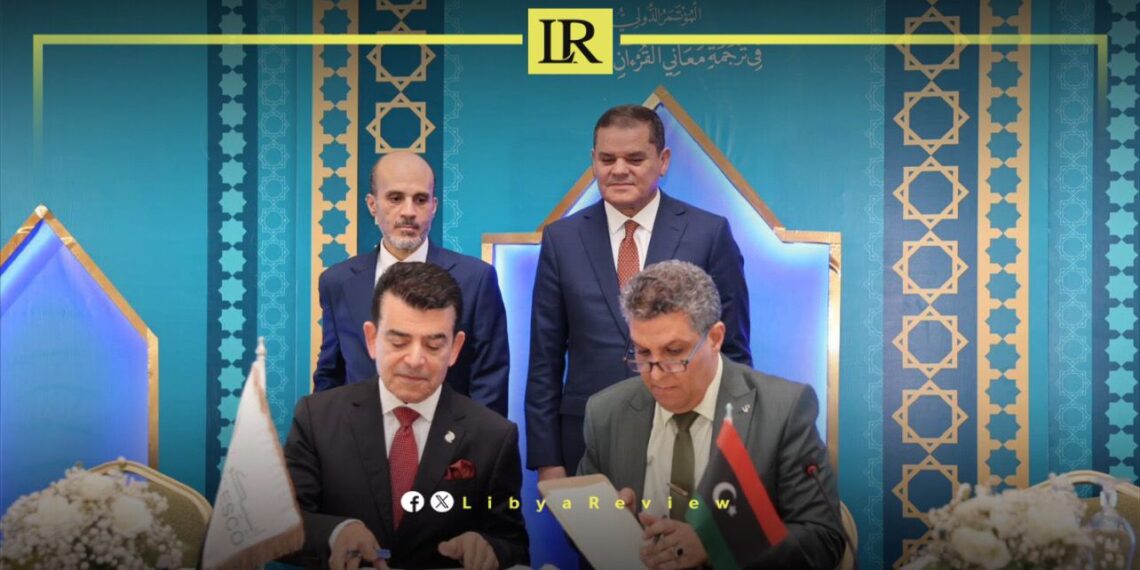The Islamic Educational, Scientific and Cultural Organization (ISESCO) has selected the Libyan city of Benghazi as the capital of culture in the Islamic world for the year 2024.
The announcement came during a press conference held in Tripoli, attended by the Prime Minister of the Government of National Unity (GNU), Abdelhamid Dbaiba, and the Minister of Education, among other ministers.
Dbaiba, in his speech on the occasion, considered the selection of Benghazi as the capital of Islamic culture as a confirmation of its great status and distinguished cultural heritage.
“This choice represents an important message for Benghazi to be a model in reconciliation, addressing grievances, and healing the social fabric,” Dbaiba said.
He noted that Benghazi has always been and continues to be a beacon for the nation, as it was the birthplace of the first Libyan university that produced intellectuals and scholars.
Last June, GNU’s Education Minister Mohamed Ammari discussed with ISESCO’s Director-General, Salem bin Mohammed Al-Malik, the preparations for declaring Benghazi as the capital of culture in the Islamic world.
The two parties also discussed the developments of the partnership between the organization and Libya in the fields of education, culture, and science. As well as the prominent programs currently implemented by the organization, particularly in supporting youth in the fields of technology, innovation, and entrepreneurship.
They highlighted the current programs and projects being implemented in cooperation between the organization and Libya.
In December, ICESCO announced the registration of 21 new Libyan historical and cultural sites of tangible and intangible heritage in the Islamic world, during its 11th meeting in Rabat.
GNU’ s Ministry of Culture and Knowledge Development submitted comprehensive files covering the archaeological and artistic dimensions of these sites. These include their architectural elements, preservation status, and conservation reports.
The ministry formed a committee with experts from relevant public authorities, to nominate the most prominent heritage sites across the country for inclusion in the Islamic Heritage list.
The newly added sites include Al-Zaher Palace (King’s Palace), Old Jdeed Town, Nalut Palace, Libya Palace, and Atnatof, among others.
The list, submitted by the Libyan authorities, featured 31 elements in the preliminary list awaiting approval in the upcoming meeting.
Libya holds the highest number in the decision, positioning it at the forefront of the final list.
The statement said that the Libyan ministry focuses on safeguarding tangible and intangible cultural heritage, aligning with international and regional organizations such as the Arab Organization for Education, Culture, and Science, ISESCO, and UNESCO.
The statement added that the Committee will continue registering more heritage elements, reflecting its commitment to preserving Libyan heritage, and promoting it on regional and international levels.


